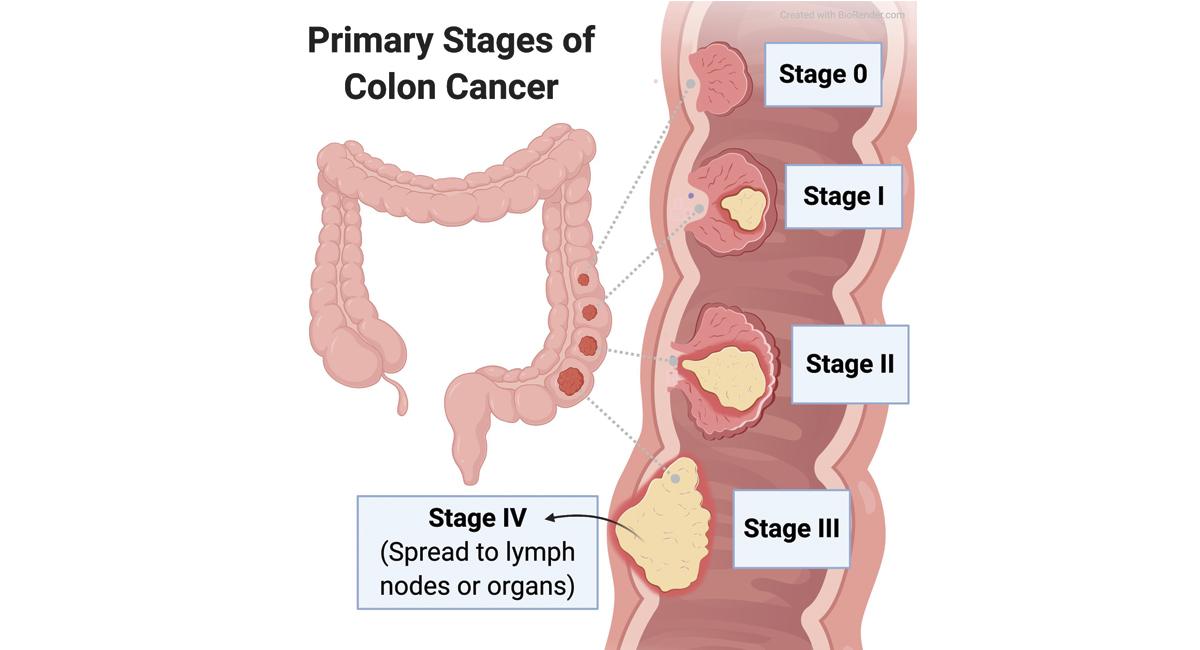
Introduction
Colon cancer is one of the most common cancers affecting the digestive tract. Although it typically affects older adults, it may occur at any age. Regular screening for people at risk of developing colon cancer can help in early diagnosis and ensure prompt colon cancer treatment in Bangalore at Smiles Gastroenterology.
Colon cancer is cancer originating in your large intestine (colon). The colon is a part of the digestive tract that continues as an extension of the rectum. Cancer in the colon often combines with rectum cancer. Hence, many people also term it colorectal cancer.
Colon cancer typically occurs in older adults. They initially appear as polyps – small, benign cancerous growths within the colon. These polyps may be few and tiny, developing into cancer over time. Polyps usually display some symptoms and, once identified, are easy to treat. If you experience any symptoms it is best to reach out to a Colon Cancer Specialist in Bangalore available at Smiles Gastroenterology.
Request an Appointment at Smiles
What Can Cause Colon Cancer?
Experts presently believe that gene mutations in the cells lining the colon result in cancer. Typically, genetics regulate the growth and differentiation of cells in your body. Mutations can hamper healthy growth and result in the accumulation of cells, forming a tumour.
The mutated cells accumulate within the colon’s lining to form small, noncancerous growths, also called polyps. Left untreated, these polyps become cancerous. Eventually, the cancerous cells can grow and obstruct the digestive tract preventing the natural passage of food.
Although the presence of genetic mutations does not confirm colon cancer, it puts you at risk of developing cancer. These mutations can be inherited or acquired in a person’s lifetime.
Certain underlying conditions like chronic inflammation of the colon, diabetes, obesity, and noncancerous polyps can increase your risk of developing colon cancer. Some studies have also linked colon cancer with diets low on fiber and high on fats and calories.
What Are the Symptoms of Colon Cancer?
- ● Change in bowel movements
- ● Complaints of constipation or diarrhoea.
- ● Blood in your stool.
- ● Abdominal pain and cramping.
- ● A feeling of incomplete bowel emptying.
- ● Fatigue.
- ● Sudden weight loss.
How is Colon Cancer Diagnosed?
If you have symptoms indicating a possibility of colon cancer, your doctor will recommend additional tests to confirm the diagnosis.
- ● Lab tests – Blood and stool tests can detect any abnormalities in the functions of your digestive tracts. A study for biomarkers can help the doctor determine the prognosis and your response to treatments.
- ● Imaging studies – Imaging studies (such as abdominal and pelvic CT scans) can help your doctor determine the stage of cancer. It will help them choose an appropriate treatment for you.
- ● Colonoscopy – For a colonoscopy, your doctor will use a thin and flexible scope (fitted with a camera) to view the colon and rectum. It can help detect any polyps present in your colon. Your doctor can also simultaneously collect a sample for biopsy to determine if the cells are cancerous.
How is Colon Cancer Treated?
- ● Surgery – In the early stages, the size of colon cancer is small; it allows easy excision. As the polyp is easy to localise and is contained, a colonoscopy can successfully remove the tumour. In such cases, the risk of recurrence is relatively low.
- Larger polyps may need parts of the colon removed through a procedure known as endoscopic mucosal resection.
- If a colonoscopy does not provide sufficient space for removing the polyp, laparoscopic surgery can be beneficial. The surgeon will make small incisions along specific locations on your abdomen to insert specialized surgical instruments.
- Advanced colon cancer can extend into the surrounding tissues and organs. An aggressive surgical approach to respect the tumor may be necessary.
- The surgeon can perform a colectomy to remove part of the colon with tumour and the surrounding healthy tissues. They may also create an incision in the wall of your abdomen after the resection. A colostomy bag is then fit securely over that opening to help with waste elimination.
- ● Chemotherapy – It uses specific drugs to destroy cancerous cells. You can receive chemotherapy before the surgery to control the tumor size or post the surgery as an adjunct.
- ● Radiation therapy – It uses targeted radiations to destroy cancerous cells. Just like chemotherapy, it can be an adjunct to surgery.
- ● Immunotherapy – It involves the administration of drugs to activate your immune system. The drugs stimulate your immune cells to recognise and target cancerous cells.
What is the Outlook of Colon Cancer Treatment?
Are There Any Risks Associated with Surgery for Colon Cancer?
- ● Anesthesia reactions.
- ● Internal bleeding.
- ● Blood clots.
- ● Site infection.
- ● Injury to the intestines
- ● Prolapse of the pelvic floor.
Request an Appointment at Smiles
FAQ's
What are the Early Warning Signs of Colon Cancer?
Why do People get Colon Cancer?
Does Colon Cancer Spread Fast?
Is Colon Cancer Deadly?
Can Colon Cancer be Cured?
Need Help?
For any Information about our Locations, Doctors or Treatments.
